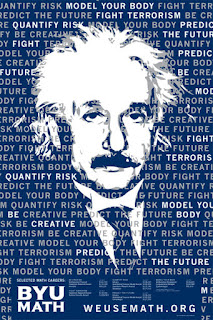There are those books on your shelf, in your tablet, alphabetised and end-noted that you just could never have done without. This week, PGLives ask you as a member of the PGLives community to leave a comment on what research book you could never have done without! Also please feel free to leave a comment with your favourite summer read (I need to go sit on a beach somewhere!!).
This post is dedicated to the book nerd in all of us that I know is just itching to be released on the world!! Here is what some of the inner book nerds of Postgraduate Lives Community had to say about their favourite research book or in many cases books!!
Tracy:
The one research book that I have found most useful so far is 'The Coding Manual for Qualitative Researchers' by Johnny Saldana. It has great tips on coding, keeping analytic memos, and sets everything up using nice simple language. Highly recommend it for novice researchers and those wanting a better understanding of the different ways you can tackle coding your data.
 Lara:
Lara:Oooh a bit of a cheat here because mine is an edited book!! So lots of variety!! The one book that I could not have ever done without and was a revelation when I found it is Poetic Inquiry: Vibrant voices in the social sciences edited by Monica Prendergast, Carl Leggo and Pauline Sameshima. It even has a sequel!!! I cannot wait!!
Syliva:
I have lots of faves but I guess a basic one that I referred to frequently in the beginning when writing my methodology chapter - Michael Quinn Patton (2002) Qualitative Research and Evaluation Methods. SAGE Publications, California. Why do I like him? Simple, clear and to the point. Easy to navigate. Creswell I also like and I enjoyed reading various Lincoln & Guba texts (dated perhaps but some really good first principles stuff for qualitative research). Hmm... as I get thinking back there are lots of others - researching the research part was fun!
Megan:
There is no one book for me at the moment. But you can’t beat:
Creswell, J. W. (2013). Research design: Qualitative, quantitative, and mixed methods approaches. Sage publications. To get you going and for reassuring you when you are feeling lost and alone.
For doing qualitative analysis I can’t live without Thomas, D. R. (2006). A general inductive approach for analyzing qualitative evaluation data. American Journal of Evaluation, 27(2), 237-246.
For doing qualitative analysis I can’t live without Thomas, D. R. (2006). A general inductive approach for analyzing qualitative evaluation data. American Journal of Evaluation, 27(2), 237-246.
For doing basic inferential stats, I can’t use SPSS well without those 3-5 minute YouTube video clips by various professors around the world. There isn’t a question I can’t find an answer to out there.
So it’s a mixed bag from me. Book, article, internet resources.
Keely:
 It's so difficult to pick just one book! However, since coming across Miller, Birch, Mauthner and Jessop's (2012) book, 'Ethics in Qualitative Research', I have found myself pulling it out when planning research and considering methodology. A couple of chapters have been especially useful - Ch4 addressing issues of gate-keeping and 'informed' consent, and Ch7 which addresses interviews and 'doing rapport', both useful chapter if researching and interviewing with young people. I'm sure I'm not the only one who will mention there are other go-to books such as Cresswell, Crotty, Denscombe, or Babbie, which are all useful for methodology
It's so difficult to pick just one book! However, since coming across Miller, Birch, Mauthner and Jessop's (2012) book, 'Ethics in Qualitative Research', I have found myself pulling it out when planning research and considering methodology. A couple of chapters have been especially useful - Ch4 addressing issues of gate-keeping and 'informed' consent, and Ch7 which addresses interviews and 'doing rapport', both useful chapter if researching and interviewing with young people. I'm sure I'm not the only one who will mention there are other go-to books such as Cresswell, Crotty, Denscombe, or Babbie, which are all useful for methodologyTheoretically, my copy of Doreen Massey's, 'for space' is getting a workout with my Phd, providing insights into ways of thinking about spaces of interrelations, and how this concept meshes with concepts of online/offline. Plus, given my topic, I can't ignore Engin Isin's various works theorising citizenship, especially his latest book theorising 'Being digital citizen', which was an insightful read as I approached analysis
Barrie:
I found the following book invaluable: Rogers, R. (Ed.) (2004). An introduction to critical discourse analysis in education. Manwah, NJ: Lawrence Erlbaum Associates.
Rogers outlines the complex and competing approaches to critical discourse analysis, and the various edited chapters engage with both the critiques and possibilities in practice.
Also, as my research drew on a (critical) social constructionist perspective, chapters by Mary-Sue Richardson (pp. 87-104), and Stead & Backer (pp. 29-44) in McIlveen, P., & Schultheiss, D. E. (Eds.). (2012). Social constructionism in vocational psychology and career development. Rotterdam, NL: helped to clarify the differences between constructivist and constructionist perspectives, and how these provide different explanations of social life, bringing into question the dominance of psychology in relation to human behaviour. Now its your turn to add to the list - is there a must have, gotta read, O.M.G. you forgot that one!!?
[Photo credits: unsplash.com]
























